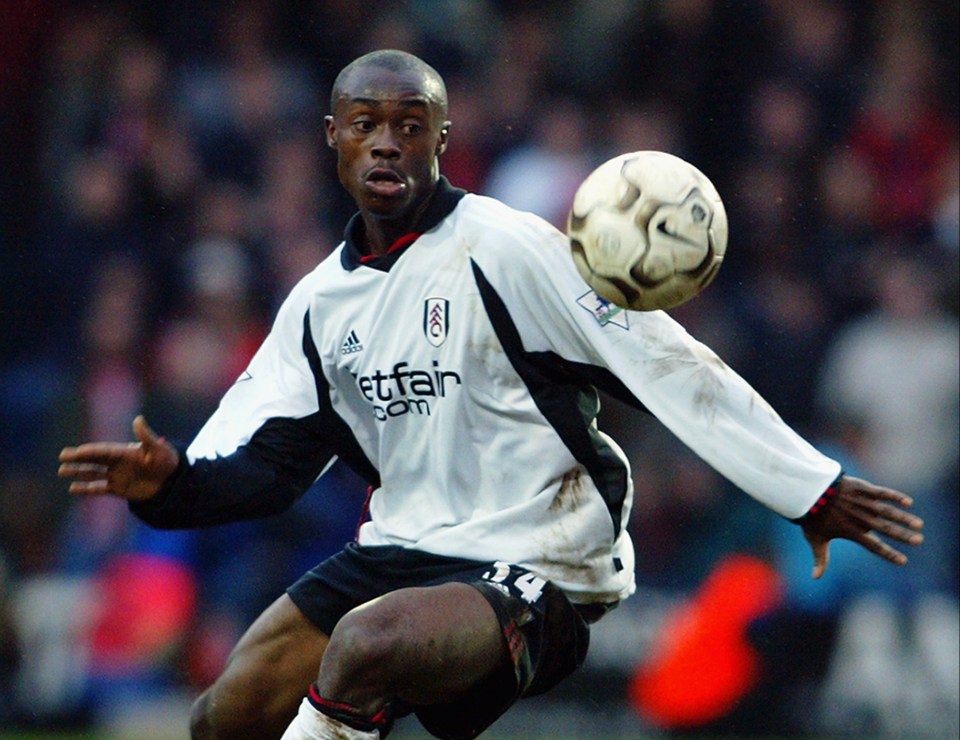Football is a ruthless and unpredictable business, where aspiring players could see their careers in tatters at any turn – but few end in this much scandal.
Elvis Hammond played Premier League and Championship football for Fulham and Leicester City, but his promising career came crashing not due to a lack of talent on the pitch, but what he did off it.

It’s estimated less than four per cent of academy players make it to the top level, and even then professionals can be written off by coaches later down the line, or be forced to retire due to injury.
In Hammond’s case, his life as a professional footballer ended in a haze of drugs scandals and money laundering.
Born in Accra, Ghana, Hammond was a product of the Fulham academy having moved to London at a young age, eventually making his first-team debut in 2000.
The striker made 13 appearances for the Cottagers, including 11 in the Premier League, without scoring a goal – spending most of his time at the club gaining experience on loan at Bristol Rovers, Norwich City, and Dutch side RBC Roosendaal, where he scored twice in 15 matches.
In 2005, he joined Leicester City, initially on loan before making the move permanent.
He played for the Foxes until 2008, scoring eight goals in 58 appearances.
After leaving Leicester, Hammond continued his journey through several clubs up and down the English pyramid, including Cheltenham Town, Sutton United, Woking, Farnborough, and Eastbourne Borough.
He earned one international cap for his country, his sole appearance came in a friendly against Mexico on March 1, 2006, a match played in preparation for the 2006 FIFA World Cup.
Hammond did not score any goals in his international career and appeared to end his footballing career at non-league side Kingstonian in 2015, but his journey was anything but free from controversy.
Hammond was given a six-month suspension after he was found to have taken cocaine in September 2003, during his loan spell at Carrow Road.

This troubling information was unearthed in a Channel 4 Dispatches investigation in 2011, which also highlighted former Birmingham City striker Gary O’Connor’s positive test for the drug during the 2009/10 season.
The programme uncovered an apparent cover-up involving both the club and the FA, following former manager Alex McLeish’s claims that the striker was sidelined due to injury.
A secret document disclosed several players had tested positive over the past eight years – one of those names was Hammond.
But the controversy did not end there as, in 2012, Hammond faced a 12-month prison sentence for his involvement in an international money laundering scheme.
He admitted guilt, alongside another accomplice, in illegally transferring £278,532 from Ghana.
This hefty sum was allegedly funneled into a bank account belonging to H & W Enterprise Ltd, touted as a refund for a doomed property deal in Ghana.

According to police, the money was frozen after it was taken from the account of a Ghanaian property development company.
A trail of fraudulent documents later exposed four unauthorised transfers totalling $1.27million to the UK and Cyprus.
In January 2010, shortly before Hammond joined Woking FC, the duo were charged and were due to stand trial.
However, the trial was suspended as Williams and Hammond provided sale contracts and plans showing that Williams’ family had sold land in Ghana.
But detectives again traveled to Ghana and obtained evidence to prove that the documents were false.
Today, Hammond’s current whereabouts are a mystery, suggesting he may have quietly stepped away from the world of football.
Despite a promising start to a once bright career, the shadows of his off-pitch transgressions ultimately proved to be a devastating price to pay.

